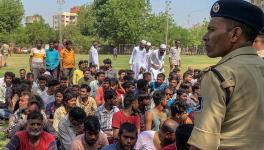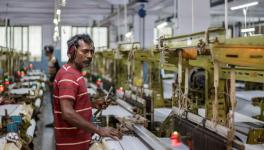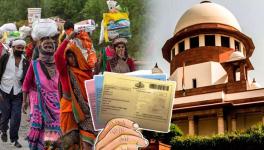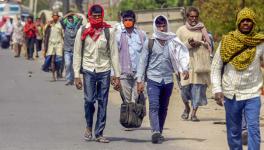A Month After Lockdown, Food Distress Continues to Remain High for Migrant Workers: Report
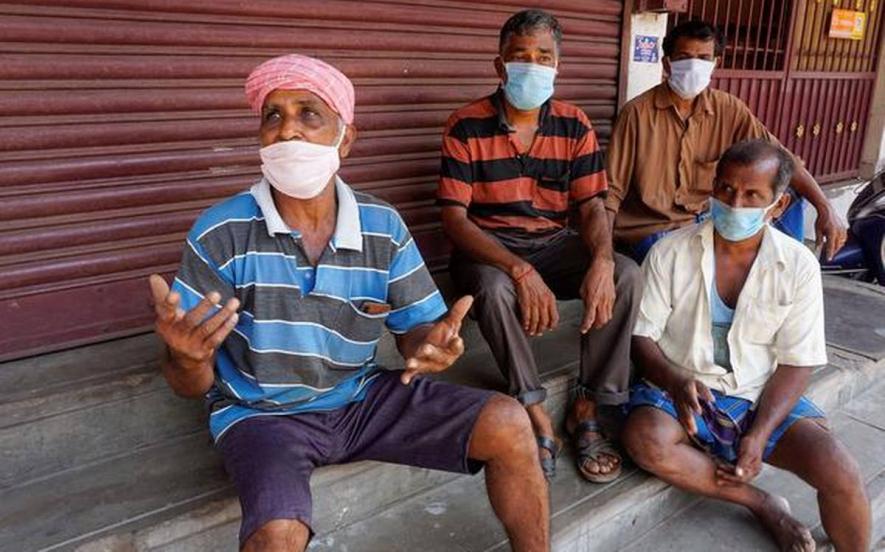
The report points out that PMGKY also makes some incorrect claims. It says, citing numerous economists, that the actual amount in the relief package is much less than what was announced. Representational image. | Image Courtesy: The Hindu
New Delhi: Until April 26, four out of five workers, that is, 80% of migrant workers who reached out to the Stranded Workers Action Network (SWAN) for help, did not have access to government rations, while 68% said they still do not have access to cooked food, according to a report published by the organisation earlier this month. It was pointed out that food distress continues to remain very high among the workers, and about 50% of the workers who reached out to the network had rations left for a day.
Till April 26, SWAN interacted with 16,863 stranded workers, of whom 4,024 were women and children. Out of 7,235 people who have received money transfers from SWAN (43% of the total), around 19% of the workers requested for a repeat transfer and 16% received repeat transfers. The total amount of money transferred by SWAN till May 1, was Rs 22,40,500, according to the report.
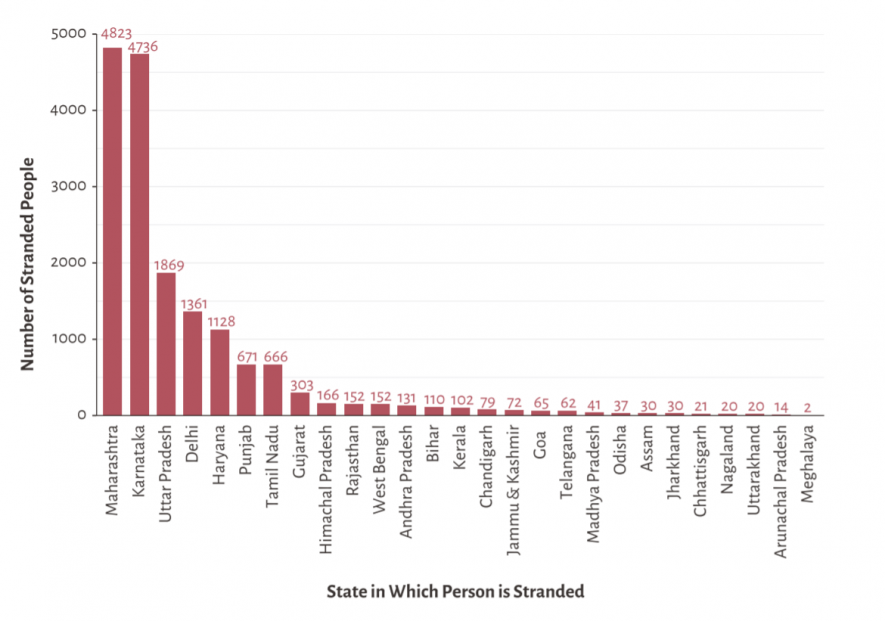
(Source: SWAN)
The financial package, Pradhan Mantri Garib Kalyan Yojana (PMGKY), which was announced by Finance Minister Nirmala Sitharaman, had nothing to offer for the migrant workers. While there was an announcement of some cash support for construction workers, in reality, most construction workers are not registered and hence not even eligible to receive any cash support, the report found.
The report points out that PMGKY also makes some incorrect claims. It says, citing numerous economists, that the actual amount in the relief package is much less than what was announced.
“According to the International Monetary Fund’s estimate, India’s actual spending announced so far by the Centre and states combined is Rs 1.42 lakh crores contrary to the Centre’s claims of Rs 1.7 lakh crores. On one hand, the Solicitor General’s responses demonstrate the uncaring attitude towards 90 percent of India’s 500 million strong labour force. On the other hand, being a respondent in the petition, his claims of “authorities attempting to address the same immediately” are vague and are not backed by the standards of evidence and rigour asked of the petitioner.”
From the data presented in the report, it is clear that access to government rations in Maharashtra has been consistently poor. Till April 14, more than 94% of the stranded workers did not have access to government rations and by April 26, this number worsened to around 96%.
Delhi has been equally poor in this respect, and the situation has deteriorated in Haryana. From about 81% not having access to government rations till April 14, it has worsened to more than 94% not having access to government rations in Haryana.
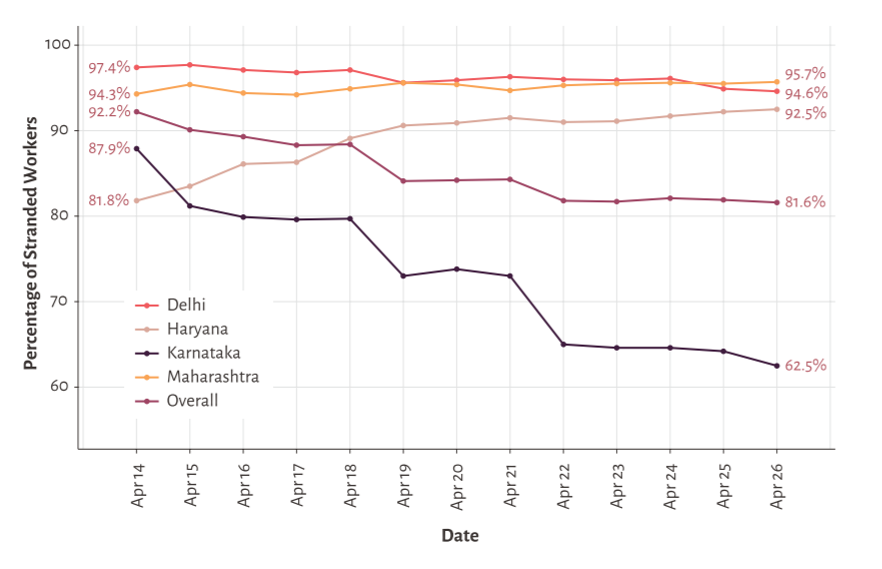
(Source: SWAN)
The administrative response in Karnataka has been better as compared to Delhi, Haryana, and Maharashtra. Among all those who reached out to SWAN till April 14, about 87% were not able to access government rations. However, by April 26, this proportion had decreased by 25 percentage points to 62%.
According to the report, because of the lack of cash-relief for the migrant workers, 64% of the workers who contacted them had less than Rs 100 left with them, while 78% had less than Rs 300 and 74% had less than Rs 200 left with them. More than 97% out of 10,383 workers have not received any cash-relief from the Central government or the respective state governments.
As on April 26, only about 6% of all the workers who reached out to SWAN had received their full wages during the lockdown. About 78% have not been paid at all. This excludes the self-employed workers. More than 99%of the self-employed have had no earnings during this period, including street vendors and rickshaw pullers.
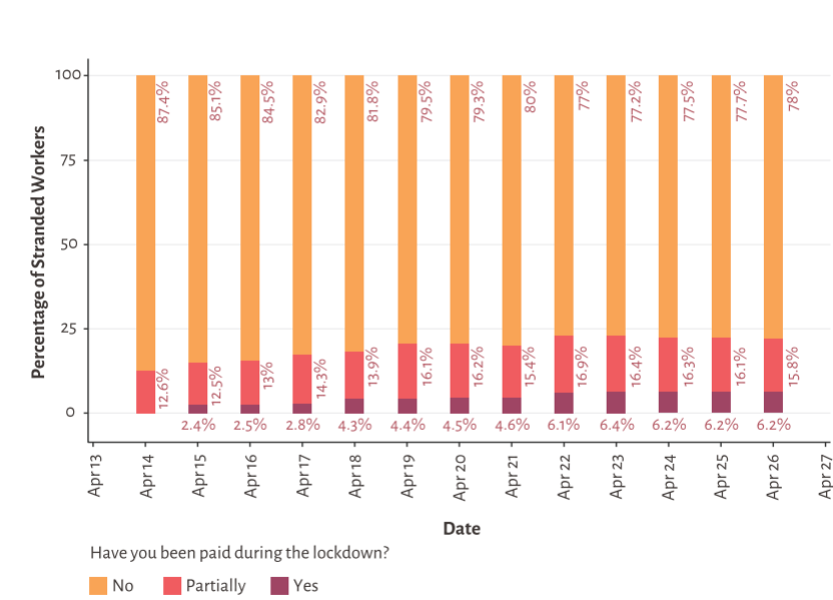
(Source: SWAN)
The network has recommended that the public distribution system or PDS ration for the months of April, May, and June be doubled and provided in advance through doorstep delivery along with cooking oil, pulses, salt, masala, sanitary pads and soap to be distributed in advance to all. It has also recommended that home delivery of rations and other basic necessities including medicines, as well as cooked food packets be done by volunteers who could be paid minimum wages for the period, as it is being done in Kerala. It also urged the governments to make sure that the feeding centres must not be closed immediately after the lockdown ends but should continue until food distress reduces.
Get the latest reports & analysis with people's perspective on Protests, movements & deep analytical videos, discussions of the current affairs in your Telegram app. Subscribe to NewsClick's Telegram channel & get Real-Time updates on stories, as they get published on our website.











